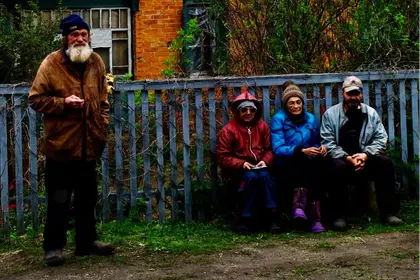“It was like being an animal in a zoo. We were totally controlled, constantly watched, told when we can come and go – and never free. In some sense, our town was ironically one of the lucky ones.”
This was how Oleksander Chumak, the town manager or ‘starosta’ of Artemivka, a farming village of approximately 1,000 people before Russia’s full-scale invasion, described his community’s seven months under Russian occupation.
JOIN US ON TELEGRAM
Follow our coverage of the war on the @Kyivpost_official.
Chumak was one of dozens of village locals Kyiv Post spoke to about Russian rule when we joined the Kharkiv Humanitarian Center on its visit to eight small communities in rural parts of Kharkiv Oblast. As the residents lined up to receive free food parcels from the Center’s young volunteers, they talked about the invasion, the occupation and the recovery of their hometowns to Kyiv Post.
Natasha Mantola, 48, town leader, Lysohirka.
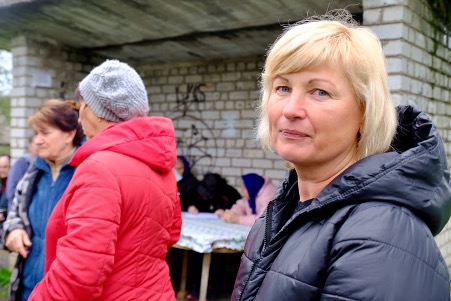
“My husband laughs at me now that I am a qualified military expert. I can tell the difference between fire from a Grad and a Uragan. I can name every kind of BTR and other Russian military vehicle. It’s not something I ever wanted to know, especially when there were rockets flying across our town and there were Buryats dug in up the road.
“For six months, we had no electricity and no communications outside of town. Every once in a while, my husband snuck out with his mobile, turned it on, and sent an SMS to the outside world to let them know the town still existed.”

Trump Makes 90 Day Foreign Aid Freeze – Ukraine Military Support Supposedly Untouched
Victoria Saray, 29, mother of three, Novy Burluk.
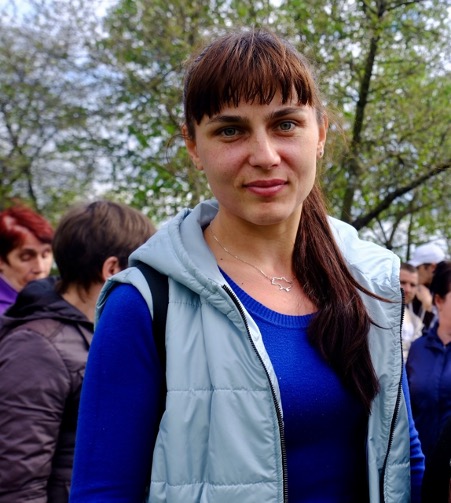
“I was born, raised and married here. My kids are all born here. We left in May, but we came back right after liberation in September. Sure, we could go west or to Europe, but this is our home.
“We believe everything will be okay because we have to. It’s impossible to live if you don’t believe that. For now, we pay for the internet for the kids’ online education and we get on with our lives.”
Victor Manoylenko, 51, village official, Lyptsi.
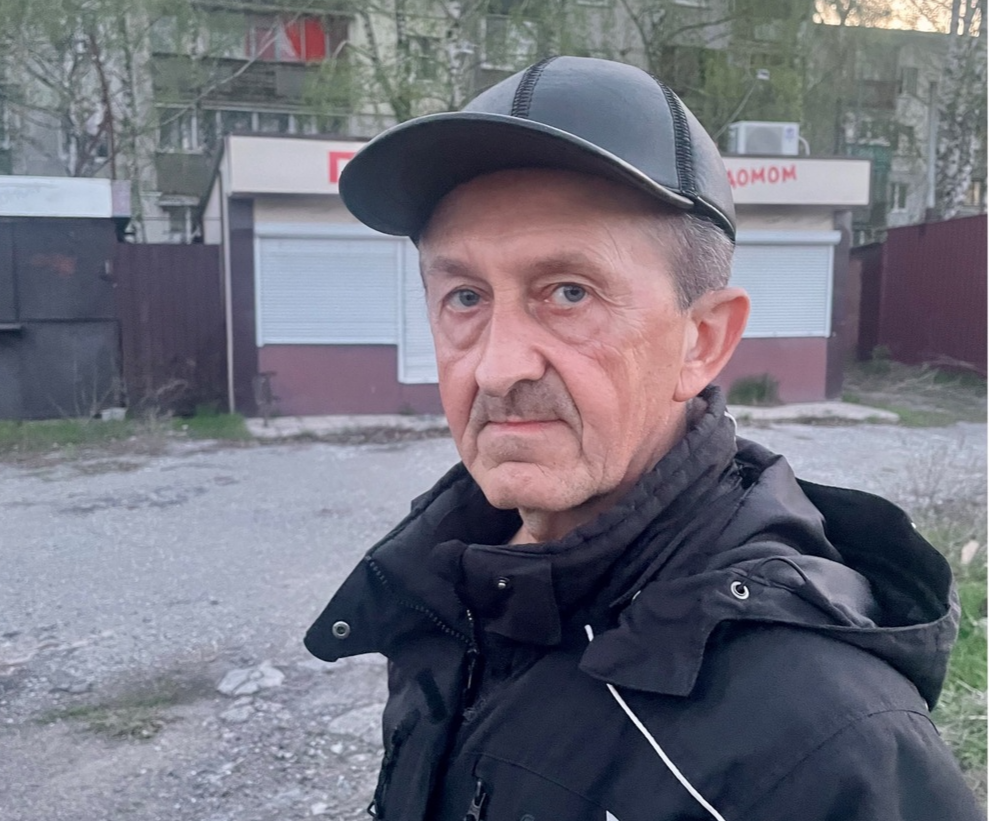
“They brought my sister’s body to my place in a bag. She’d been ripped apart by artillery fire during the Russian assault on March 7. The only way we recognised her was from the toenail polish on her feet…
“I’m not sure anybody who hasn’t lived through all this can ever understand. Once you’ve been near a Uragan [multiple rocket launching system] firing at close range… the sound rips through your guts and changes you forever.”
Iryna Blokha, 63, town administrator, Novy Burkuk.
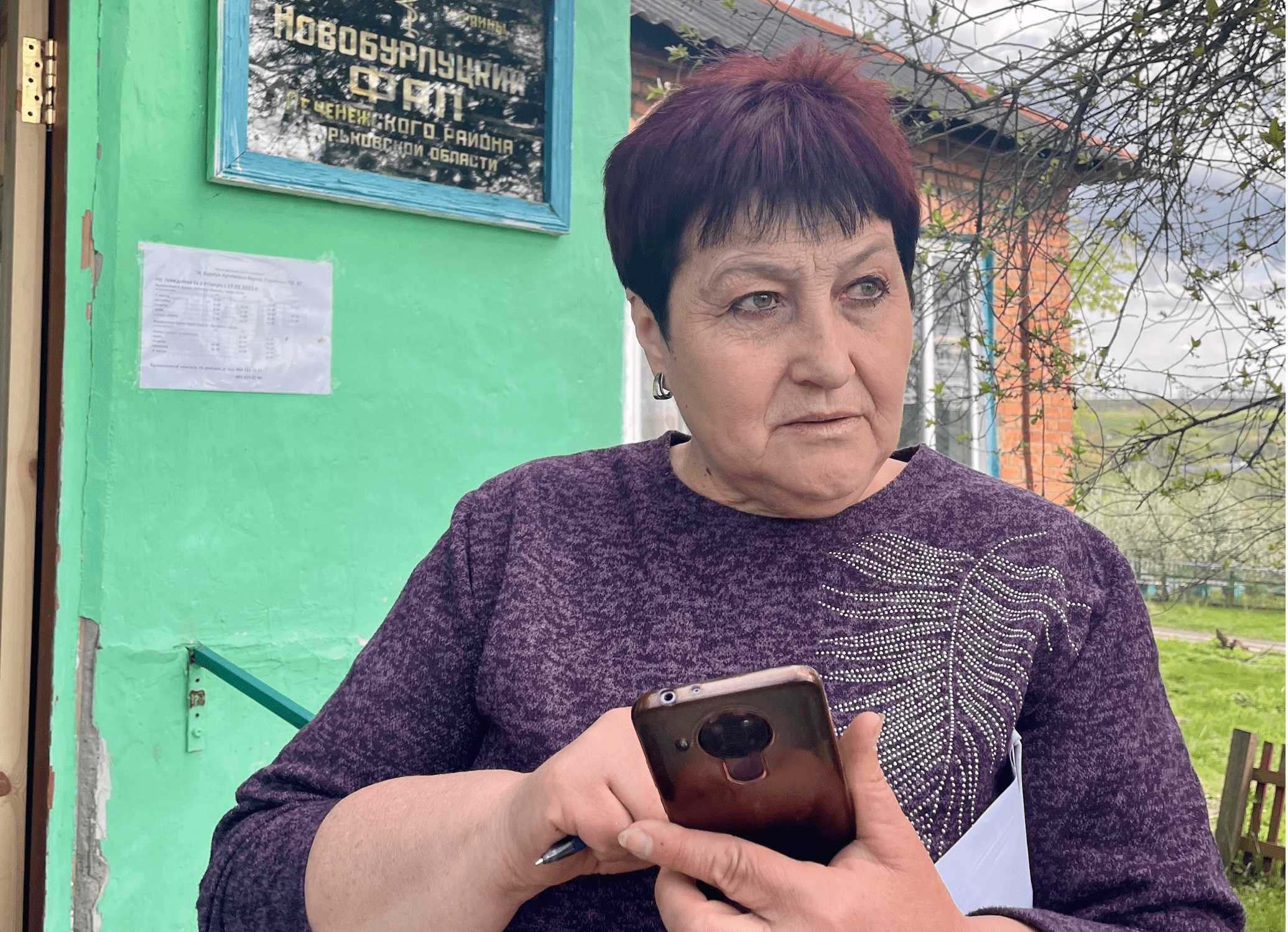
“Some of it depended on who was occupying the town. LNR troops or Buryats or whoever else, as they rotated through. In late April, a new commander came to me and said ‘where are the girls?’. We knew then we had to get people out no matter what through the ‘green corridor’…
“They told me to take down the flag [from town office]. I said no. They told me to give them the lists of residents. I said no. They told me we had to accept their ‘humanitarian aid’ from Russia. I said no. The commander came with two soldiers to my house, and they took me into the yard to shoot me. They said 'there is no more Ukraine here'. I said ‘that’s where you’re wrong.’ They went away.”
Natasha Smaha, 40, farmer, Shchaslyvy.
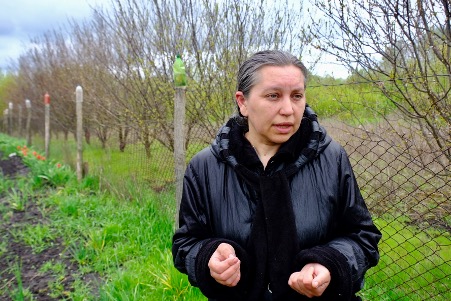
“They took over houses all over the village. That one across from us, that one in back of us. Then, they put ‘rozetka’ [stick-mounted grenades] all around their houses and into our fields. Some of it has been cleared, but some of it hasn’t, and I have to tell the kids they can’t go outside.
“Every day, they would come to ‘check’ on my husband or force him to do labour. They beat him up when he wouldn’t. One time, they threatened to shoot our dog – Tsutsyk – but my [7-year old] son threw his body across him. The soldier hit him in the back with his rifle butt.”
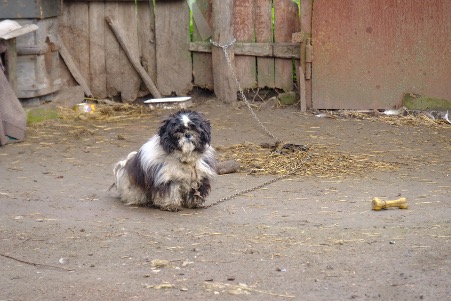
Gennadi A., 55, businessman, Kunye.
“Some of the occupants were ‘normal’ and some were beasts. But then again, how do I call somebody who comes into my house carrying a weapon ‘normal’…
“We’re still working to restore the town. Many of the fields are mined or have unexploded shells – and the state has told us it will be three years before they can do it. So, we are coming up with our own solutions.”
[‘Andriy’, 70, pensioner, anonymized town].
“80% of the people here collaborated. They were pro-Russian. This village was always pro-Russian. They say I’m lying, but I’m telling the damned truth…
“You go down the road and it’s completely different. They are Kozak villages who have always resisted the ‘katsapy’ [derogatory word for Russians], even during the Holodomor.
“The LNR were bad. They said ‘we’ve suffered for eight years – now it’s your turn.’”
Oleksander Chumak, 50, town administrator, Artemivka.
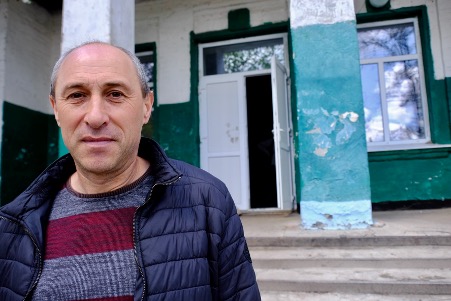
“30 percent of the fields are mined or have shells on them. They can’t be planted. That’s on top of some people already losing two seasons – whether as harvest or as rental income. It’s not simple because the companies that rent the fields aren’t going to send their workers into them. We’re developing our own way like using a modified tractor – ‘katky’ - to crush the ordnance.
“But the blown bridge has been rebuilt by the Poles, the NGOs come to help, the Kharkiv center is here today and they’re good to us. Yes, we have our challenges, but we set priorities and we go forward.”
Dmytro D. 78, pensioner, Levkivka.
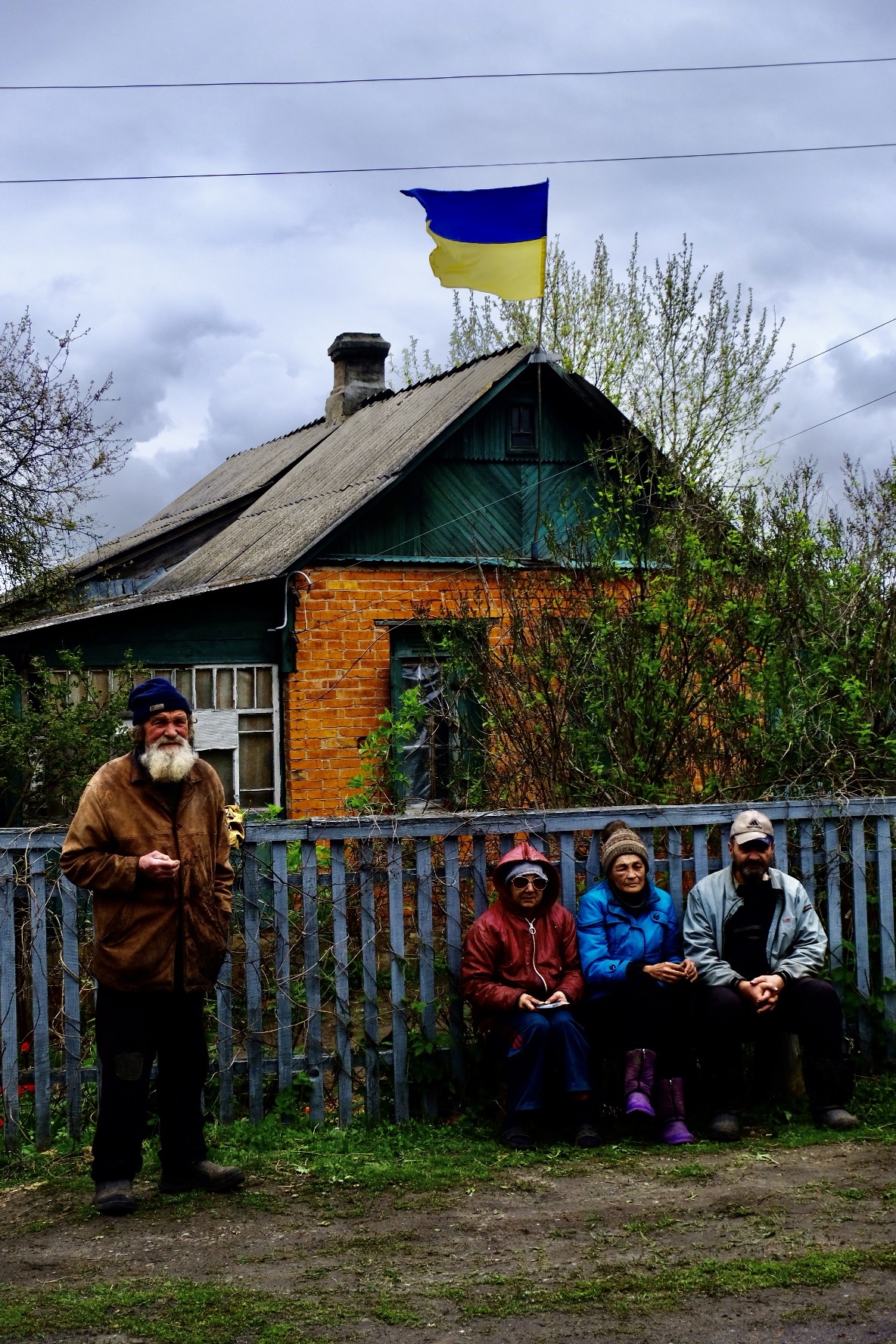
“I could say a lot, but I won’t. We survived. My goats survived. It was great when Ukraine came back. There was one of their Z cars broken down and parked on the side of the road. The Ukrainian boys rolled over it with their tank, One time going forward and then they backed up for a second time to be sure. Slava Ukraini!”
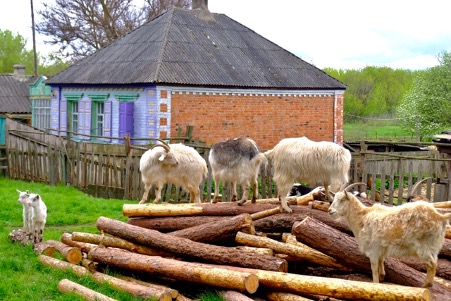
You can also highlight the text and press Ctrl + Enter


